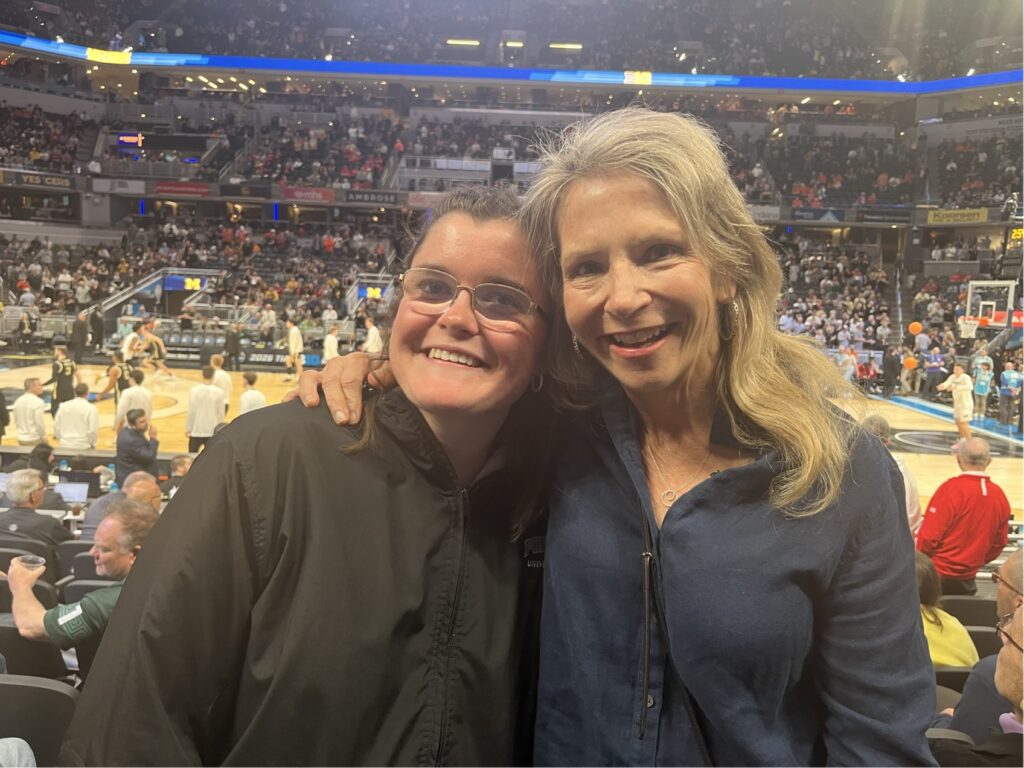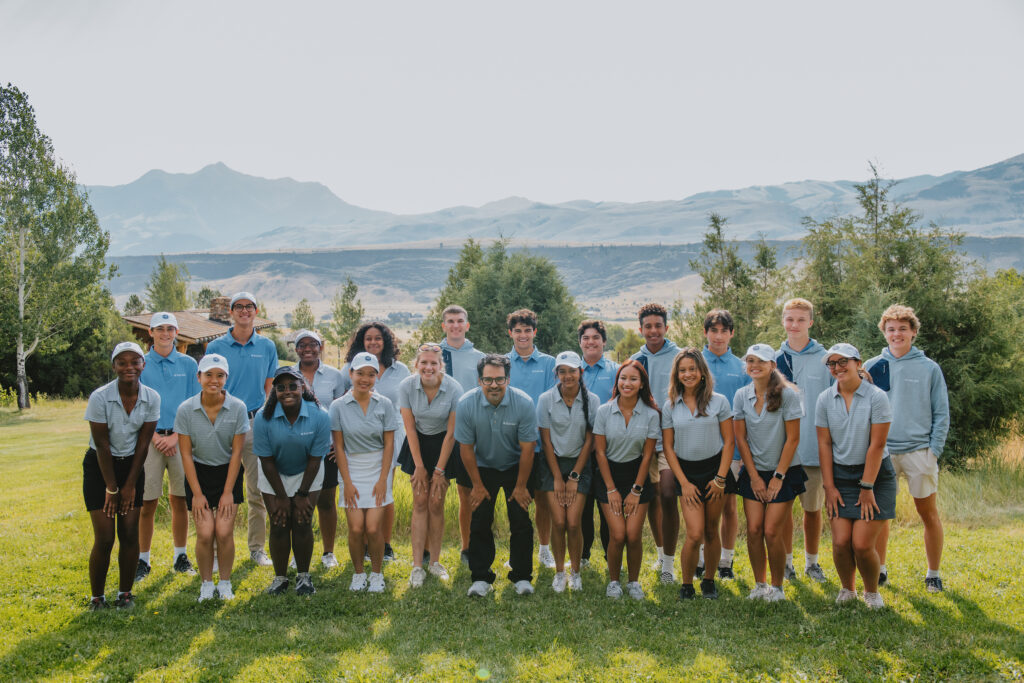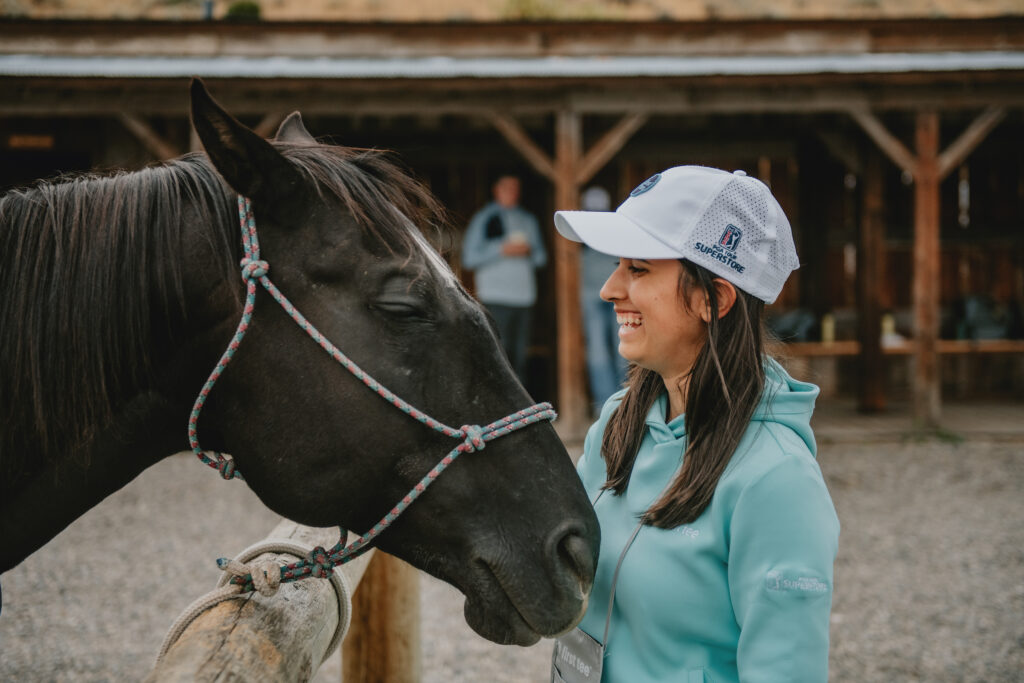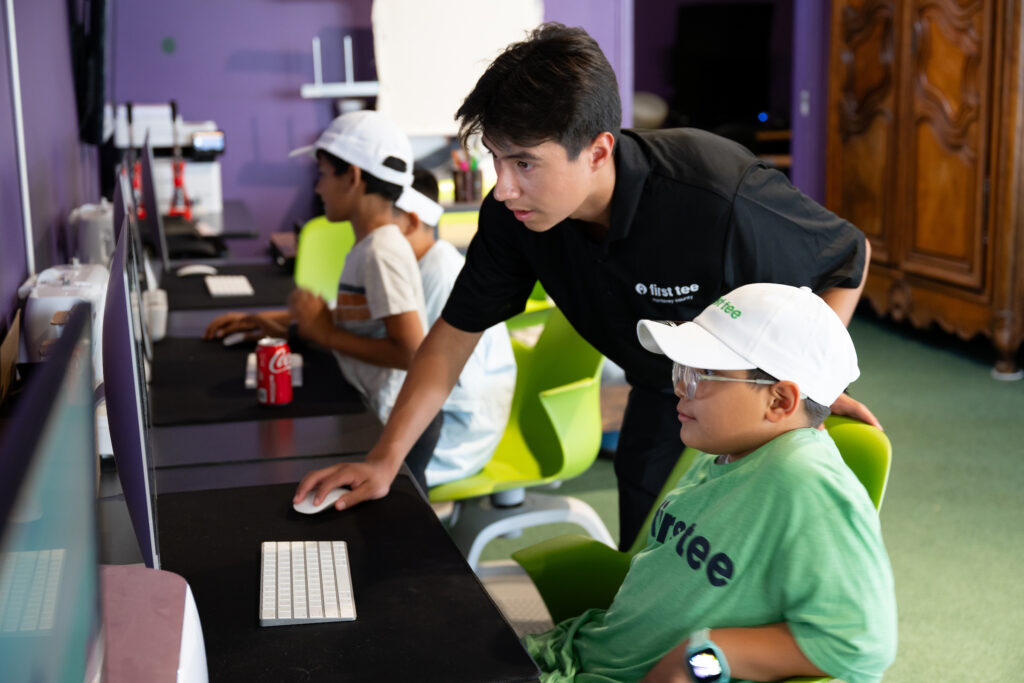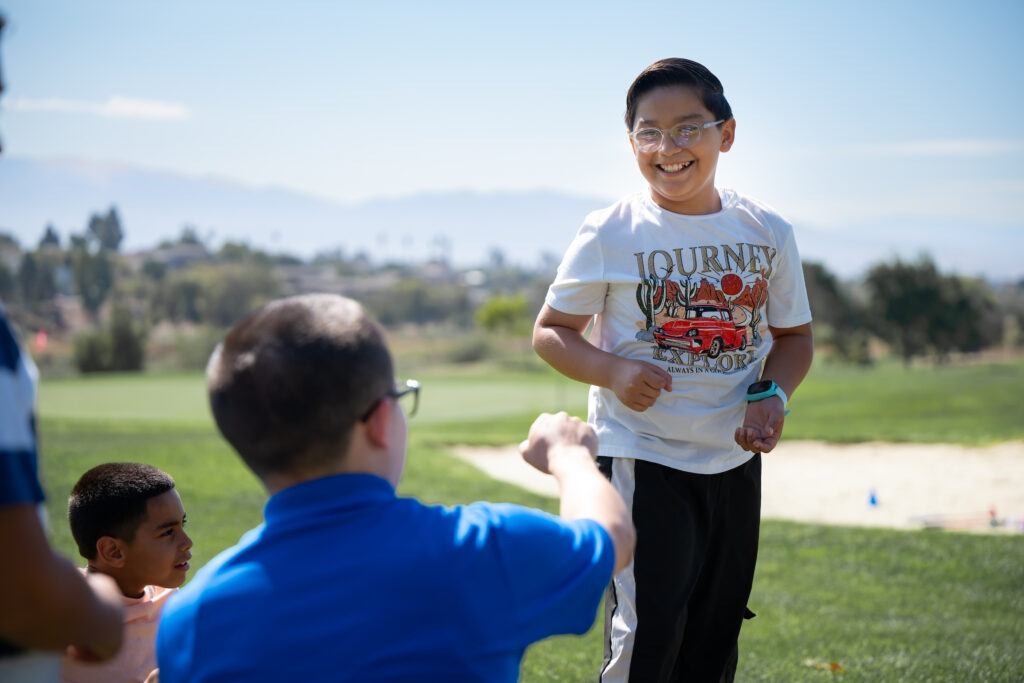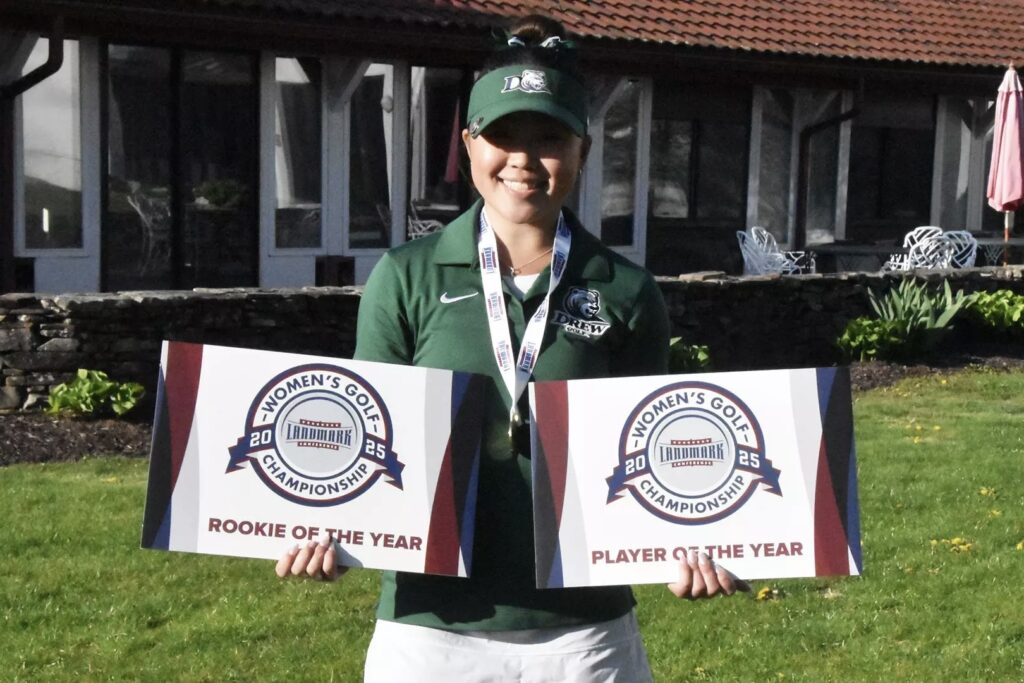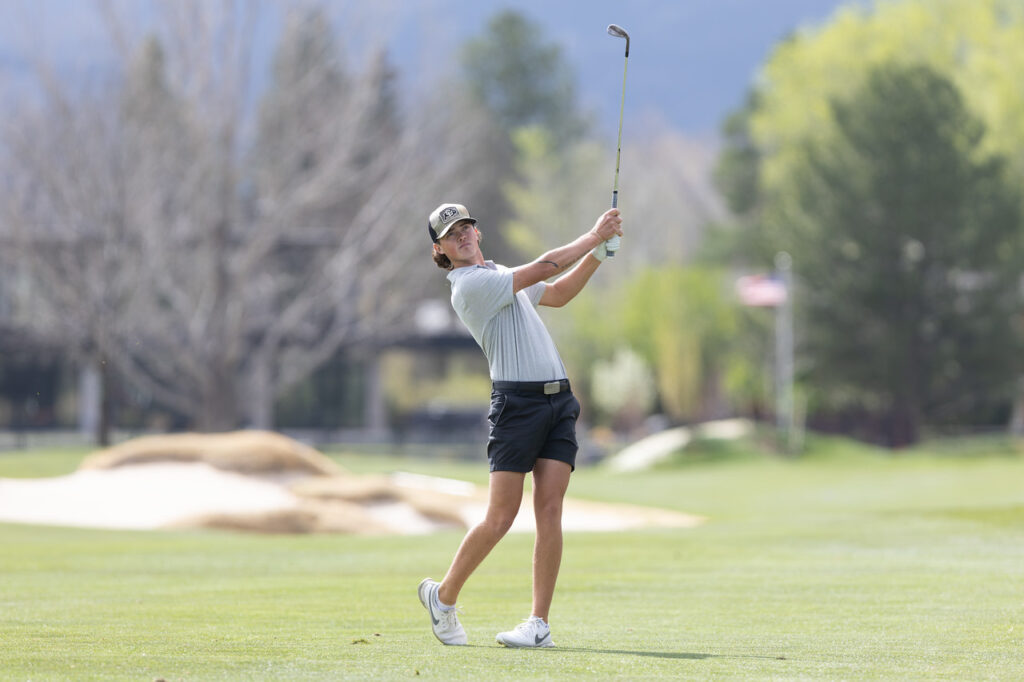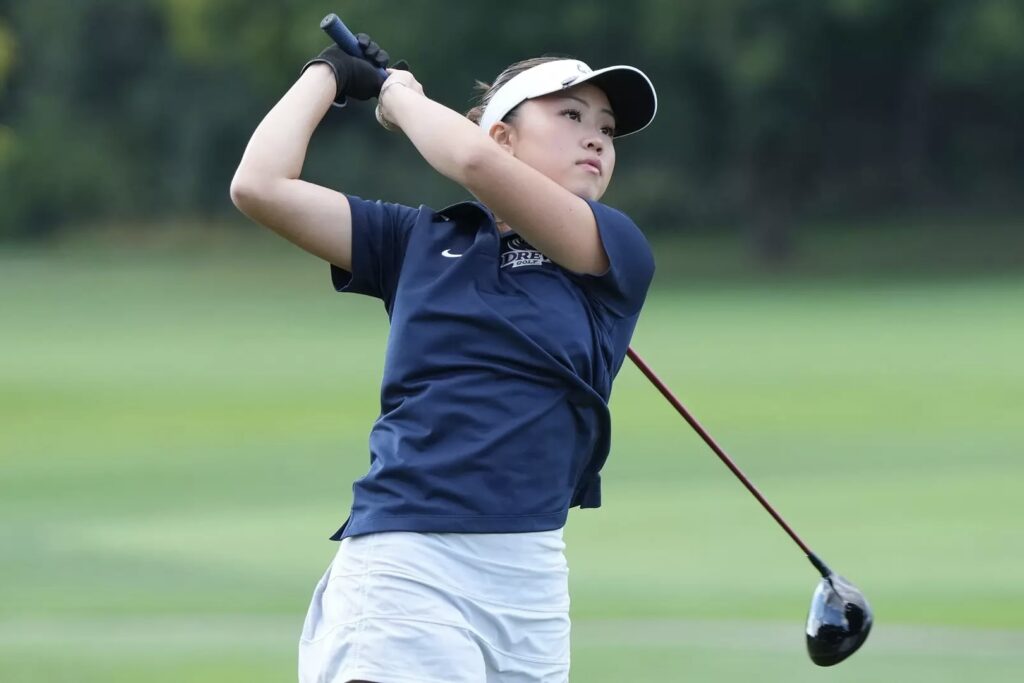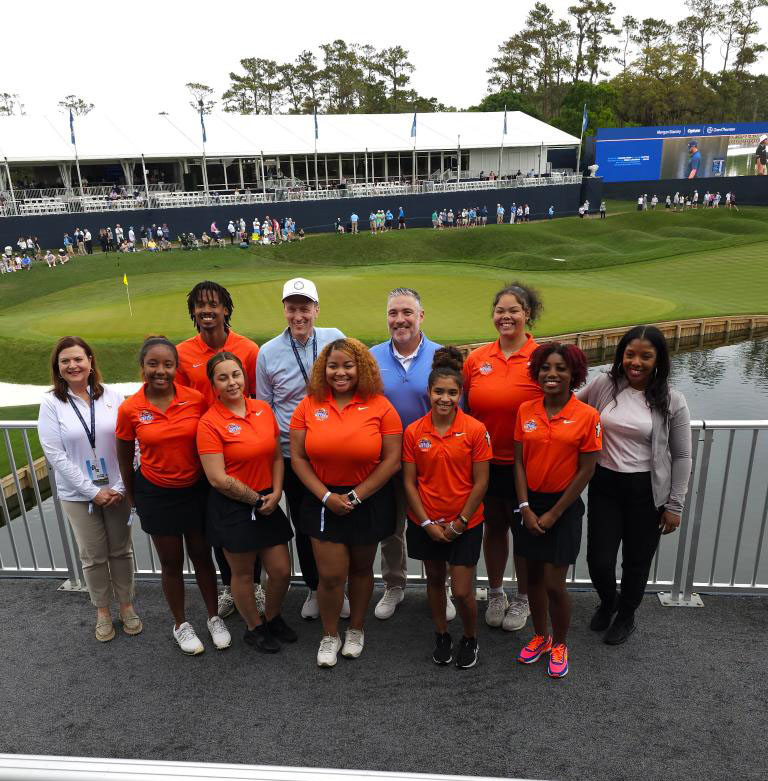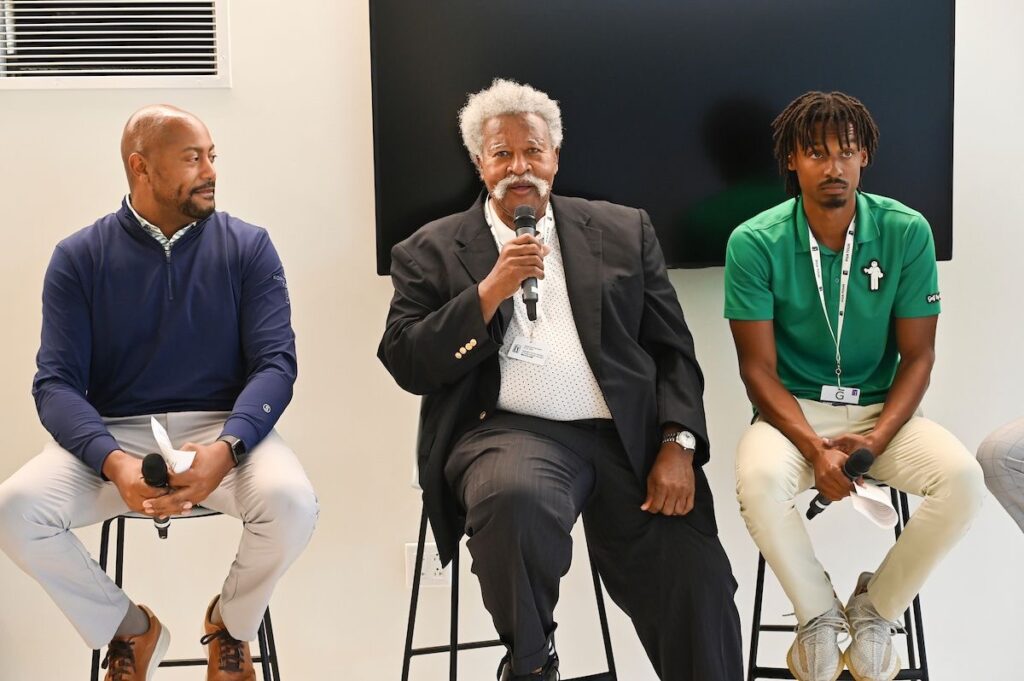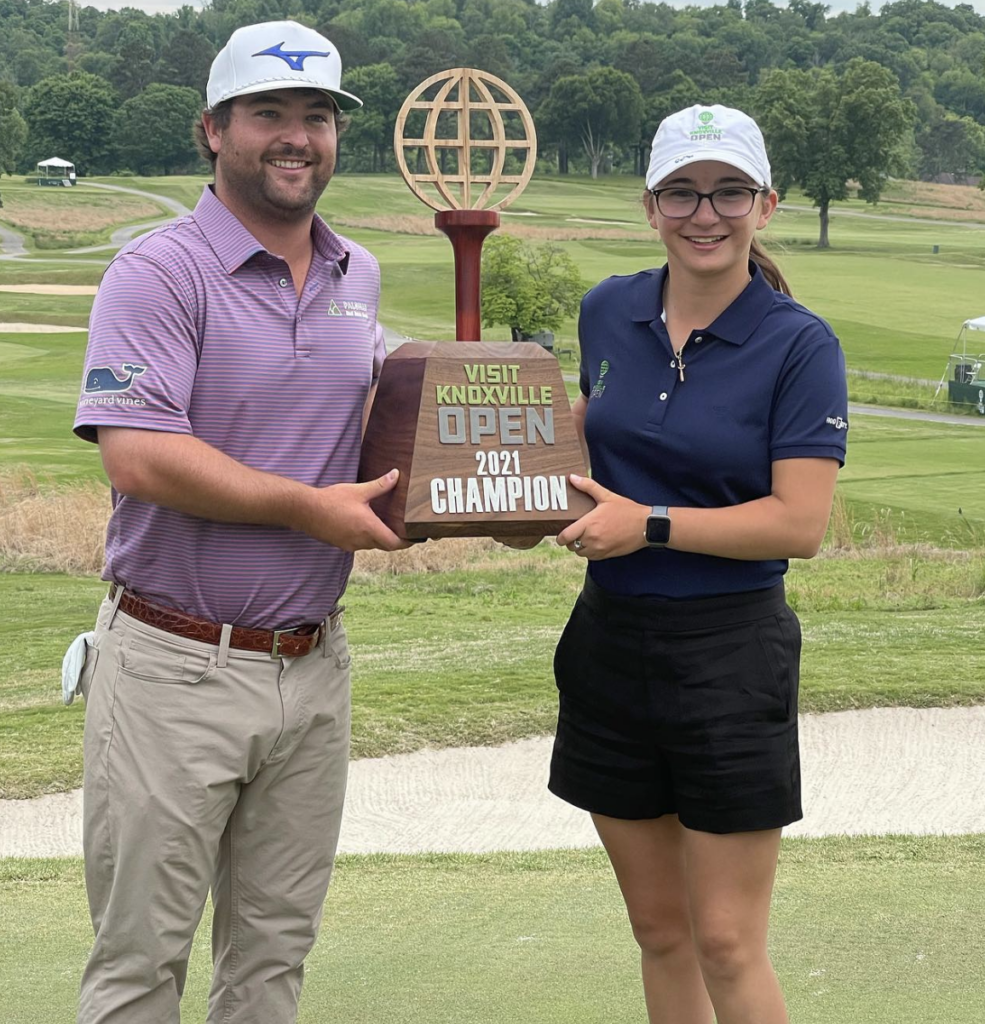The First Tee National Alumni Advisory Council held its first in-person meeting in Charlotte
CHARLOTTE, N.C. (Sept. 15, 2025) – First Tee has launched a National Alumni Advisory Council, a group of 20 dynamic alumni who are business and community leaders from across the United States. The council will play a key role in shaping the future of the organization’s growing Alumni Network.
The Alumni Council’s primary focus will be to guide and direct strategies that engage more alumni in meaningful ways — helping them stay connected to each other and to First Tee’s mission of empowering young people through golf and life skills programming.
In addition to virtual meetings, the Alumni Council will gather annually, with its first session having taken place Sept. 12-14 in Charlotte, North Carolina. The event is sponsored by Gallagher.
“First Tee alumni are an essential part of our story and our future,” said First Tee CEO Greg McLaughlin. “The Alumni Council will help ensure we are creating opportunities for them to continue to grow, give back and lead, while staying connected to the values they developed through First Tee.”
The Alumni Council is co-chaired by Rayshon Payton of First Tee – Metropolitan Oklahoma City, who works as general counsel for Delaware Sen. Lisa Blunt, and Sara Diaz of First Tee – San Antonio, a presenter for ESPN+ and PGA TOUR Live and vice president of recruiting for Capstone Hospitality.
“I’m thrilled to come full circle with First Tee, an organization that has shaped not only my life but the lives of so many others,” Payton said. “Serving as board chair of the Alumni Council is a special opportunity to give back, support the next generation and help strengthen a community that continues to inspire growth on and off the course.”
“I’m excited to continue being part of the First Tee, the program where my golf journey began,” Diaz said. “I’m truly honored to be selected as co-chair of the First Tee Alumni Council and look forward to expanding our Alumni Network to foster lasting connections and meaningful opportunities.”
Council members represent a diverse group of graduates who embody the impact of First Tee programs. They were appointed and will serve terms of two, three or four years. Together, they will guide efforts to recruit alumni, design impactful engagement opportunities and drive alumni reconnection to local chapters. As ambassadors of the program, they will inspire current participants and help grow a powerful, united Alumni Network.
The First Tee Alumni Network includes thousands of former participants who have carried the organization’s values into their careers, communities and lives. Since its launch in 2020, the First Tee Alumni Network has provided career assistance, professional and personal development opportunities and fun events for former participants. It’s free to join and open to all First Tee Alumni.
For more information about the Alumni Network, visit firsttee.org/alumni.
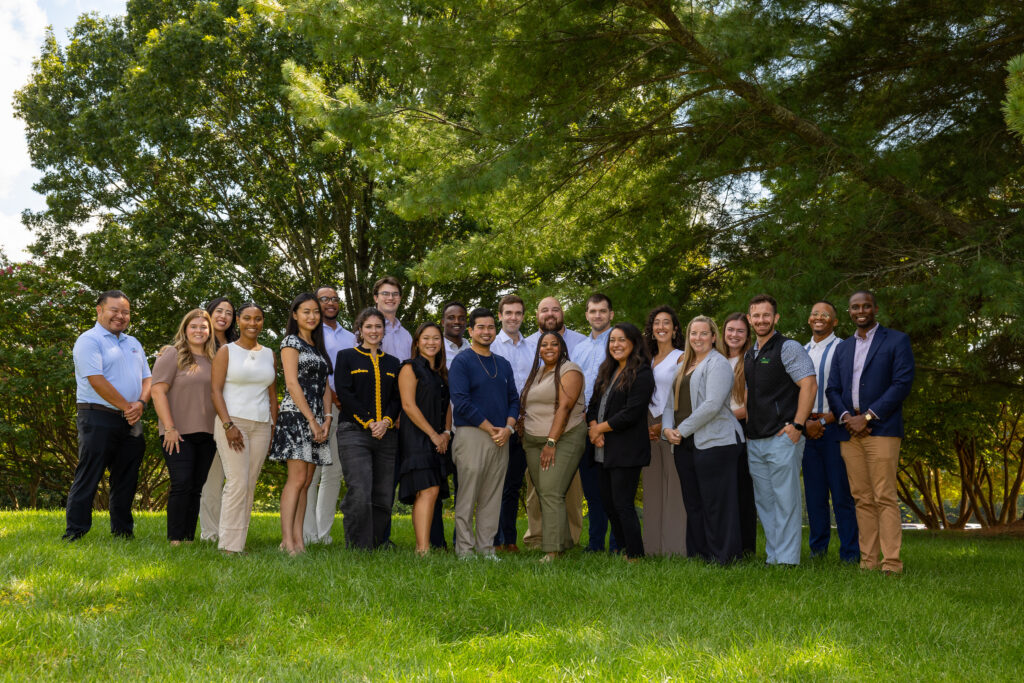
2025 Alumni Council members
| Rayshon Payton | Metropolitan Oklahoma City | General Counsel, Sen. Lisa Blunt Rochester |
| Sara Diaz | Greater San Antonio | VP of Recruiting, Capstone Hospitality |
| Anthony Bonales | Central Valley | Finance Manager, Reyes Coca-Cola Bottling |
| Grace Kehoe | Greater Charlotte | Media Logger, PGA TOUR |
| Karrington Knight | Greater New Orleans | Staff Assistant, Rep. Jasmine Crockett |
| Steven Outlaw, PGA | Hammond (Historical) | Director of Sales & Marketing, Troon |
| Colm Parrish | Pittsburgh | Category Manager, Catalent Pharma Solutions |
| Hannah Rens | Siouxland | Systems Engineer, Boeing |
| Benjamin Nganga | Tennessee | Real Estate Valuations Analyst, Baker Tilly |
| Ashley Noda | Greater Sacramento | Director of Outreach & Competitive Activities, First Tee – Greater Sacramento |
| Alyssa Ramont | Central Valley | Executive Administrative Assistant, San Francisco Giants |
| David Singh | Tampa Bay | Program Manager, Cleveland Clinic of Florida |
| Blake Christenson | Tennessee | Designer, Cooper Carry |
| Michelle Xie | Silicon Valley | Software Engineer, Dave |
| Mia Bishop | Metro Atlanta | Psychotherapist |
| Brittany Gill | Greater Richmond | Corporate Partnerships Manager, PGA TOUR |
| Derrick Ow | Monterey County | Communications & Customer Service Coordinator, Northern California Golf Association |
| Connor Shooks | Benton Harbor | Sports Management Student, University of Michigan |
| Callen Williams | Metropolitan New York | Assistant Program Director, First Tee – Metropolitan New York |
| Taryn Yee | Greater Sacramento | Program Manager, Meta |

